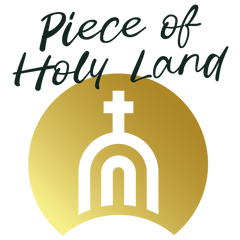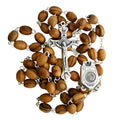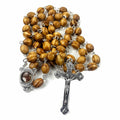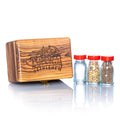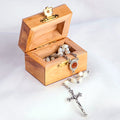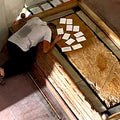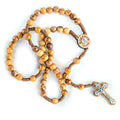Olive Wood Crosses from the Holy Land - Bridges to Biblical Times and Sacred Places
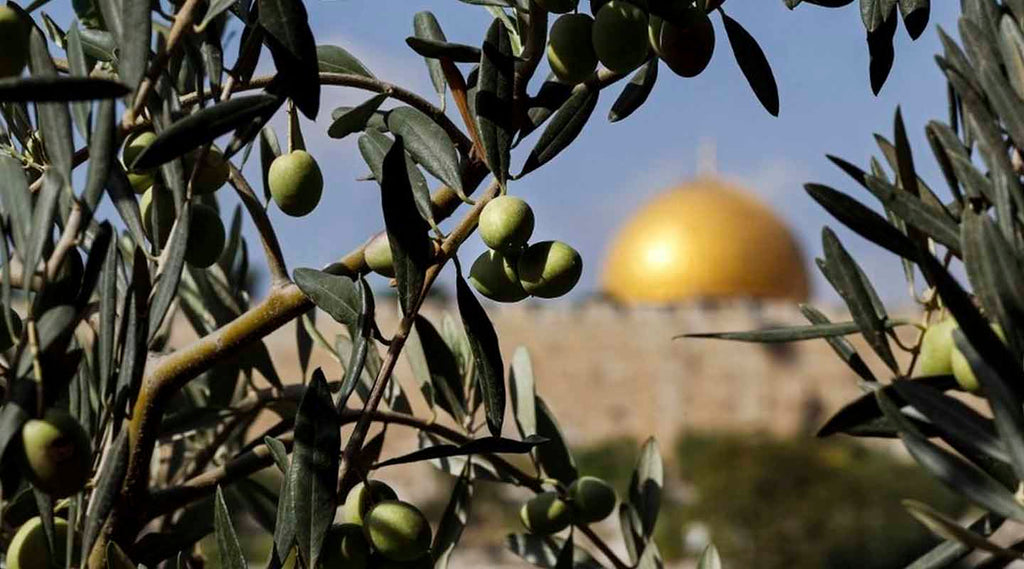
Artisanship and Devotion in the Holy Land
Olive wood crosses are not just symbols of faith; they are historical artefacts that connect believers to the cradle of Christianity. Carved from olive trees, these crosses resonate with the spiritual legacy of the Holy Land, linking the faithful to the biblical narratives and the earthly ministry of Jesus Christ. These unique crosses are crafted with precision and care, making them not only a religious symbol but also a cherished piece of history.
The olive tree, symbolising peace and prosperity, holds profound significance in Christianity, symbolising peace and reconciliation. This symbolism is deeply rooted in biblical narratives, such as the dove returning to Noah with an olive branch (Genesis 8:11), signaling the end of the flood and God’s peace with humanity. Olive wood's use for crosses dates back to early Christian communities, reflecting their desire for tangible connections to Jesus's life and ministry. These communities revered the olive tree for its durability and the spiritual symbolism it carried, integrating it into their worship and daily lives.
The crafting of olive wood crosses in the Holy Land is a centuries-old tradition, handed down through generations. Artisans from families with deep historical ties to the region approach their craft with reverence, treating each piece of olive wood as a sacred connection to the land and its biblical past. This devotion is evident in the intricate details of each cross, which are as unique as the trees they come from. The art of carving these crosses is a form of worship, imbuing each piece with spiritual significance and a piece of the Holy Land's soul.
Biblical Connections: Jerusalem, Bethlehem, and Nazareth
The olive wood cross serves as a tangible link to the sacred sites of Jesus’s life. In Jerusalem, the site of Jesus’s crucifixion and resurrection, the olive wood cross symbolizes the ultimate sacrifice of love and the victory over death. Bethlehem, Jesus’s birthplace, and Nazareth, where He grew up and began His ministry, are also spiritually connected to these crosses. They remind the faithful of Jesus’s humble beginnings, His teachings, and His earthly journey, enriching the spiritual connection between believers and the biblical stories that unfolded in these places.
Olive Wood Crosses During the Crusades
The Crusades played a pivotal role in spreading the devotion to olive wood crosses beyond the Holy Land. Knights and pilgrims carried these crosses back to Europe as symbols of their faith and protection, fostering a widespread reverence for these sacred artefacts. This period highlighted the olive wood cross's role as a symbol of faith, its connection to the Holy Land, and its significance in Christian worship.
The Olive Wood Cross as a Symbol of Peace and Hope
In contemporary times, fraught with conflict and division, the olive wood cross shines as a beacon of peace and hope. It embodies the promise of reconciliation and God's enduring love, encouraging believers to live out Jesus's teachings of love, compassion, and forgiveness.
Today, olive wood crosses remain sought-after by believers worldwide, cherished for their beauty, spiritual significance, and the connection they offer to the Holy Land. Despite modern advancements, these crosses are still crafted using traditional methods, respecting the material's historical and spiritual importance. They stand as symbols of faith, connecting the present to the sacred history of Christianity and the life of Jesus Christ.
Conclusion
Olive wood crosses from the Holy Land are more than artefacts; they are testaments to the enduring faith, hope, and peace that Jesus Christ brought into the world. They connect believers to the sacred stories of the Bible, the historical places of Jesus’s life, and the spiritual journey of Christianity. Each cross, crafted with devotion and artistry, invites believers to reflect, pray, and continue their spiritual journey, guided by a tangible piece of the Holy Land.
This exploration of olive wood crosses underscores their significance as not only religious symbols but also historical artefacts that offer a profound connection to the biblical times and places of Jesus’s life. Through these sacred objects, believers are invited to deepen their faith and find inspiration in the enduring legacy of Christian tradition.
SHARE:

